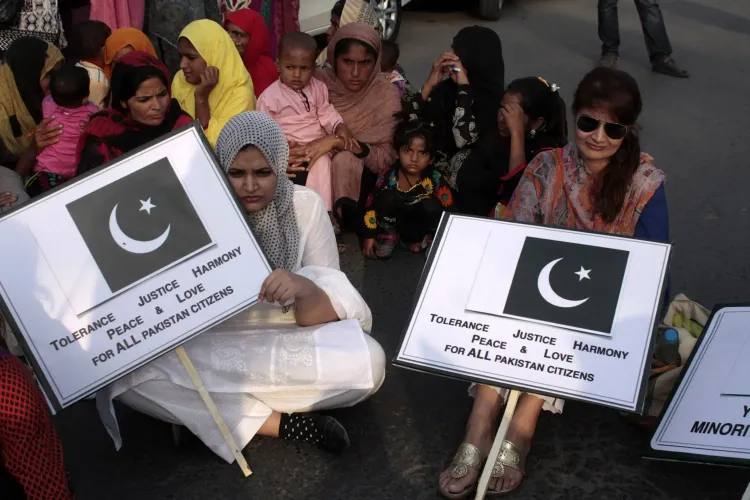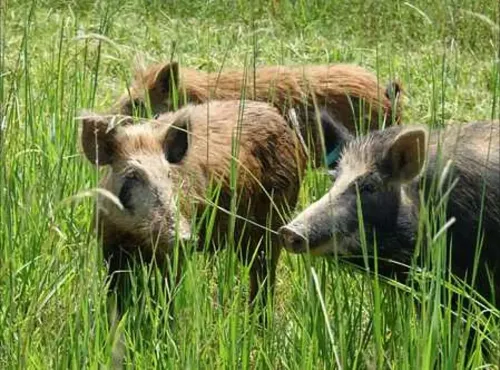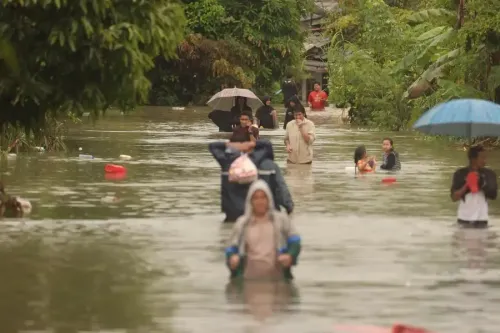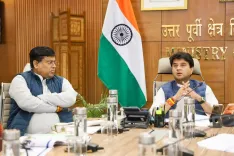Is Deep Disenfranchisement Spreading in Pakistan Due to Minority Abuses and Election Scandals?

Synopsis
Key Takeaways
- Rising human rights abuses against minorities in Pakistan.
- Systematic persecution of religious communities.
- Military influence weakening democracy.
- UN concerns over state-sponsored violence.
- Vulnerability of Christian and Hindu girls to forced conversions.
Islamabad, Oct 16 (NationPress) A recent report reveals that Pakistan is grappling with escalating human rights violations against minorities, including Christians, Hindus, and Ahmadis, alongside a scandal involving blatant electoral fraud, highlighting the profound d disenfranchisement woven into the nation's social structure.
The report indicates that during the 60th session of the UN Human Rights Commission (UNHRC), numerous reports, statements, and firsthand accounts detailing state-sponsored violence against minorities in Pakistan were presented by victims.
As reported by 'European Times', the country is facing a deteriorating economy and the increasing influence of the military under Pakistani Army Chief Asim Munir. Consequently, the nation’s purported democratic institutions have significantly weakened, leaving citizens entrenched in injustice and disenchantment.
“Religious minorities in Pakistan are subjected to systematic oppression and escalating violence that occurs with impunity. United Nations experts have raised alarms regarding the “growing violence against vulnerable communities based on their religion or beliefs,” emphasizing that minorities have faced ongoing assaults, killings, and relentless harassment in recent months,” the report highlighted.
“The Ahmadiyya Muslim community has experienced an alarming rise in targeted oppression. Over the past year, Ahmadis have faced killings, arbitrary detentions, and desecration of their worship places and burial sites. UN experts assert that Pakistan must ‘end the pattern of impunity’ that allows perpetrators of anti-minority violence to operate freely, often with implicit official support,” it stated.
The report underscored that Christians and other non-Muslim minorities encounter similar challenges, with blasphemy accusations frequently inciting mob violence against the Christian community.
It noted that offenders are seldom apprehended, and the judiciary often cooperates with intelligence agencies. The report claimed that Christian and Hindu girls are especially susceptible to abduction and forced conversion by extremists, with cases often “legitimized by the courts” under the guise of religious marriages.
Furthermore, it pointed out that ethnic minority groups in Pakistan have also faced severe state oppression.
“The country’s 40-million-strong Pashtun community has suffered military operations and counterterrorism measures that frequently violate human rights. Pashtun activists assert that under the pretense of combating Islamist militants, security forces have engaged in extrajudicial killings, enforced disappearances, and torture of Pashtun civilians for many years,” the report elaborated.
“A similar narrative unfolds in Balochistan, home to the ethnic Baloch minority, where a decades-long insurgency has been met with ruthless state force. Hundreds of Baloch activists and suspected dissidents have 'disappeared' or been discovered dead over the years, and protests by families of the missing often face harassment,” it continued.
The report emphasized that the human rights crisis in Pakistan is exacerbated by a simultaneous attack on democracy itself, culminating in the turmoil surrounding the 2024 “rigged” general election.
“The developments of 2024-2025 portray a grim scenario: Pakistan’s democratic facade is crumbling under the weight of unchecked military power, making its minorities the primary victims of this hybrid ‘democratic-military’ governance,” it concluded.










